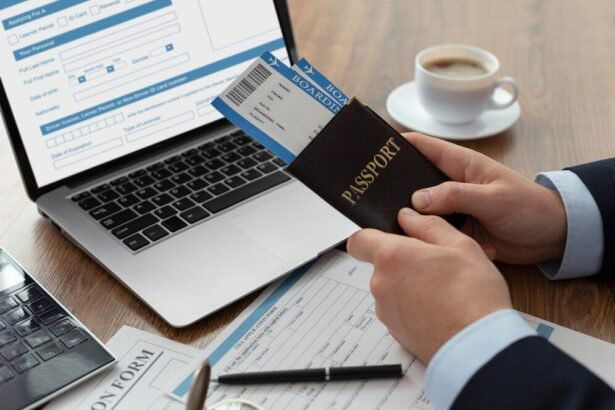If you have something to do and need to leave the office early, one of the best options would be to fake sick for work to go home early. Since I have faked sickness severally when I used to work for a multinational company with strict bosses, I will share some ideas and steps you can use to achieve the same success with faking your sickness.
The best way would be to prepare in advance by complaining to co-workers about your health. They would be the ones to vouch for you on the day you intend to carry out the action.
On the d-day, you have to continuously act in a way that attracts attention like coughing, sneezing, or putting your head down at your desk. Exaggerate your condition the action by breathing through your mouth and being sluggish.
To make your sickness faking have a better chance of success, you’d have to prepare better. The steps below will guide you.

13 Steps To Fake Being Sick for Work
Research on what Illness to choose
Researching what Illness you will suffer from is the first and the most crucial step before trying to fake sick from work. Do your research on the kind of Illness to choose. This will make you have an excuse that sounds believable because, based on your research, you will have all the symptoms that match the Illness you choose.
The research will also help you know how long the sickness you choose will take to heal. It is also vital you know the Illness to fake because choosing any illness that is supposed to land you in the hospital and the one you can cure at home. Some illnesses can take only one day ( such as migraine), several days (such as flu), and weeks (chickenpox). You can’t fake you have chickenpox and go back to work tomorrow.
Here are some of the illnesses you can fake for one day;
- Headache
- Stomach pain
- Diarrhea
- Asthma Attacks
- Dysmenorrhea or Premenstrual Syndrome
Begin acting sick 1-2 days before the day you want to miss.
This is very important if you want your boss and colleagues to believe you. You need to start acting sick a day or two before the day you want to take off. Since you have researched the Illness, start faking the symptoms at work. Pretend you are not feeling well. Mention to your colleague that you have minor symptoms like headaches or stomach pain. As the day goes on, start acting sluggish or making uncomfortable facial expressions to make it look like your condition is worsening.
Eat less to look as if you lack appetite.
If your colleagues are offering you food because of Illness, try acting as if the food is not going through. You don’t eat much food when sick because it doesn’t sit well in your stomach. You must order a meal as you usually do so that it won’t look as if you are faking it. Then when it is time to eat, eat slowly as if you are not hungry.
As you ingest the food, make uncomfortable facial expressions and rub your stomach to make it look like the food is affecting you. So that it won’t look as if you are pretending, try to gag after you swallow.
Avoid Chitty Chats in the Office
When trying to fake sick from work, there might be a temptation to partake in office discussions, especially when the discussion is something you are passionate about. During the period of pretending to be sick, you must avoid engaging in any form of general discussions in the office or extended discussions with anybody.
This will create an illusion that you aren’t your regular self, and people will start to wonder what is actually wrong with you. Never give out a specific answer about what might be wrong with you, only give out the symptoms you are feeling or having.
“I feel weak around my bones, running a bit of temperature, and having this heavy headache at the right side of my head”
This should be a sample answer when questions are thrown about what might be wrong with you.
Read Also: Where to Get Fake Profile Pictures 2024 [Social Media]
Remain dull all-day
You look pale, you haven’t talked to anyone all day, and you are falling asleep at your desk, it is evident that someone would notice and inquire as to what is wrong with you.
If no one asks you, continue to play the script until someone finds out you look pretty unusual. The good thing about this is that even if you didn’t succeed the same day, you are sure of skipping work the next day.
Don’t respond to greetings, keep your head down, and don’t follow up on any email or office job. If your attention is needed, walk sluggishly to your boss and remain in that mood till they ask you, “is everything okay?”
Escalate with obvious signs.
If you aren’t getting the attention you deserve to fake sick for work and leave early, you will have to escalate. There are sure signs in times like this that aren’t good-looking.
You can escalate with a cough, which is the most obvious and would get your attention faster. As you go on, you can compliment it with regular sneezing and loud-breathing.
These are quite okay to get your superior’s attention and present you the opportunity to request to leave the office and take care of yourself at home.
But if all these doesn’t help you leave work early, then you can skip work tomorrow.
Call your boss or supervisor early the following day.
You only need to do this the day you want to miss work. Call your boss very early the next day. Don’t delay; the earlier you tell your boss, the better. You will have to give your boss a rough voice during the call to make it seem like you are just waking up.
Additionally, calling early is beneficial because you are likely to catch your boss when they are also sleeping. If you call your boss too late, it will look like you don’t care about your work. While calling your boss, keep the conversation short because you are sick.
You don’t need to give the complete details, inform your boss that you are not coming today because you are feeling. Give a piece of direct information that you were up all night or having severe stomach pain.
You can also add something that will make it seem like you regret missing your work. Something like, “I ought to have informed you since yesterday, but I was hoping it is stress that I will be okay before the next day.” Making it clear that you’re not coming is necessary and not a request.
“Hello My John,
I am sorry I am calling to collect permission with respect to my absence to work today. I have been feeling terribly sick for the past few days and it got worse today. I am yet to visit the hospital, so I can’t give any specific response as to what might be wrong with me. I will also send an official email to HR, but I felt I needed to inform you over the phone first and get you onboard as to my situation.”
Make sure you sound sick.
It is also essential you sound sick but don’t overdo it. There is nothing wrong with acting as if you are a little bit. During the call, you can sniffle or cough occasionally so that your boss will think you are sick but don’t overdo it. You can also take it slowly to show you have no strength.
It would be best if you practised this well to be convincing enough. If you want your voice to sound extra, you can talk into a pillow before making the call. This will hurt your throat, so make sure you do it well.
Be prepared for questions.
Your boss must ask you some questions, but if you caught him/her while sleeping, it is possible they forgot to ask. All you need to do, especially if your boss is a nosy type, is imagine the question they might ask.
For example, if you work in a food service company, your boss may ask you how contagious your Illness is. They may also ask if you have tried some medication before calling. In this situation, the best thing to do is to say you think you are contagious and that you have been attempting all medicines like painkillers and antacids but all to no avail.
Also, mention that you have called your doctor but are waiting to hear from their office because they are currently booked out. If your boss demands a note from the hospital when you return, you can say that your appointment isn’t until later in the week. With this, you can see a doctor who will help you.
Send an Email to HR
If you have an HR department, it is advisable to send an email right after speaking to your superior/manager. You can just edit the phone call you made to your boss and customize it for the HR manager.
But if you don’t have an HR department, then the phone is considered good enough. The email to HR is a formality since you have already spoken to your superior and gotten his permission.
End the conversation on a good note.
It would be best if you ended the conversation on a good note. Don’t shout at your boss and let them say whatever they want to say. After talking to your boss, try to leave a remarkable impression. You can say that you will do your best to recover and come to work the next day and that you are grateful for understanding. Make your boss feel like you regret taking a day off. Show how committed you are to your job and that you can’t wait to get back. You mustn’t overdo this.
To make the faking look natural, you can even tell your boss to call you if there are any questions regarding your work in the office that day. You can say, “I will be in bed all day, so you can give me a call if you need my help.” Don’t do this if your boss will find another alternative,e but do it if your boss is at a loss without you. Then end the call by thanking your boss for being considerate.
Follow up on your sickness when you return to work.
Don’t work into work after your fake sick day looking as if you have been perfectly healed. The acting up must continue at work. Act as if you are still getting over your sickness. Cough softly because you don’t have to overdo it. Make sure you don’t talk about your Illness but let your boss and colleague ask about your health.
Play it down to look more natural by saying, “I’m not feeling bad like yesterday, and with a little rest, I will be fine.” And also, to look natural, you may not sleep a day before so that you look exhausted to them
This will make your boss and colleague believe you next time you call in sick. Act reserved that day. Don’t respond in a friendly with your co-workers when they ask about your health, but reply to all their questions regarding your Illness. This is important because you need to save your strength.
Don’t tell your colleagues that you faked being sick.
Don’t trust anyone at your working place. Believe only in yourself on this matter. Thinking that you have a colleague who is your friend and can never leak your secret is a lie. This is important because you will look irresponsible or annoying to your colleagues, and they may even report you to your boss, which will be the end of your work.
You don’t need to tell your colleagues, because you will have an actual illness one day and they won’t believe you. And you don’t want to keep defending yourself whenever you try to fake sickness for work.
Getting a day off work by faking sickness is good because we all need to rest. But this doesn’t mean you should start bragging about it, or it will make you lose relevance before your boss and colleague.
Conclusion
It would be best if you didn’t fake sick for work when you have an essential thing to do, like attending a meeting or meeting a client. It is also vital that you don’t fake being sick too often because your boss may figure it out and sack you.






